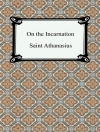This book calls attention to an urgent need for postcolonial feminist approaches to practical theology. It not only advocates for the inclusion of colonialism as a critical optic for practical theology but also demands a close look at how colonialism is entangled with issues of race, ethnicity, gender, class, disability, and sexual orientation. Seeking to highlight the importance of the interdependence of life, the author challenges and contests the notion of independence as the desirable goal of the human being. Lifting up the experiences of overlooked groups–including children at adult-centered worship, queer and interracial youth in heterosexual and white normative family discourse, and non-human species in human-centered academic and theological realms–the book contributes to expanding the concerns of practical theology in ways that create healthy community for all human beings and non-human fellow creatures. It also takes up issues of multiple religious belonging and migration that practical theology has not sufficiently explored. These illuminating new possibilities promise to renew and even transform church communities through the inclusion of often-neglected groups with whom God is already present.
A propos de l’auteur
Musa W. Dube is Professor of Biblical Studies at the University of Botswana. She is the author or editor of a number of books, including Postcolonial Perspectives in African Biblical Interpretation (coeditor, 2012) and The HIV & AIDS Bible (2008).







![Couverture du Brian Schrag & Julisa Rowe: Community Arts for God's Purposes [Chinese] 貼近神心意的社群藝術 Couverture du Brian Schrag & Julisa Rowe: Community Arts for God's Purposes [Chinese] 貼近神心意的社群藝術](https://static.worldofdigitals.com/thumb_webp/740/9781645083740.webp)




